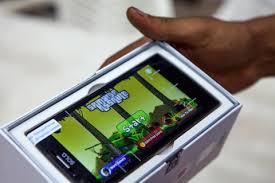You could be one out of thousands of Nigerian video games addicts – just like me. Broaden your smile – no, laugh outright. Because there are now so many young and old culprits of the satisfying crime in Nigeria (and worldwide) as we speak.
Indulging in your favorite video games, for years, was seen as a terrible time waster and distraction. Particularly if you are a student guilty of this – and you left your books somewhere unattended to. But not anymore. While this concern by parents and guardians is fairly justified, video games now provide an enviable income for lovers.
Video Games Statistics in Nigeria and Worldwide
Zealous players, developers and designers around the world are raking in tons of money from the video gaming industry worldwide. While skeptics were snoring, about 862.8 billion US Dollars in sales was recorded in Sub-Saharan Africa – in 2022 alone. This data was culled from the report prepared by Dutch research firm Newzoo, on behalf of African online game firm Carry1st.. And that in spite of high inflation rates and economic struggles within the region – particularly in Nigeria.
That’s not all. In 2022 alone, about 182.9 billion US Dollars in revenue was generated worldwide from video games. And there are reports that the sales figures were even higher in 2021. Nigeria accounted for 249 million US Dollars in revenue from video games in 2002. Huge thanks to the Covid-19 lock-down and the urge to kill boredom.
Additionally, there has been a surge in the number of Nigerian smartphone users (particularly among the youths). The Statista website reports that as at early 2023, Nigerian smartphone users hit an estimated 25 to 40 million in number. And the figures are likely to significantly increase in the coming years.
Of course there are diverse mobile games available for download on smartphones. And people carry their phones around with them almost everywhere, further fueling their indulgence in mobile games. Aided by faster and cheaper internet subscriptions, app-based mobile games alone account for 126 million users in Nigeria, as of early 2023. That is, excluding PC and console games players.
The Nigerian video games industry has become very lucrative indeed. Furthermore, the data above proves without doubt the following. That strategic players, developers, vendors and other stakeholders in the video games industry worldwide are earning well. There are even strong indications that the Nigerian video games industry will likely exceed the film and music industries in revenue very soon. The indicators ring true for the video game industry worldwide as well.
The Scope of Video Games
Video games include a broad range of electronic games played by users, using gadgets that provide audiovisual feedback. Video games allow users to interact with images generated by a computer program on a monitor or display, with the aid of an input device. Such input devices could be mouses, touchscreen, joystick, gamepad, keyboard, microphone and/or webcam. Amongst the famed collection of video games include games played on:
Computers
video consoles
video arcades
Smartphones
Tablets
television and
virtual and augmented reality headsets.
There are also several types or genres of video games. They include:
Sports
Simulation
Role-Playing
Action (including Action-Adventure and Action Role-playing)
Puzzle
Casual
Platformer
Shooter (including First-person shooter)
Survival
Racing
Vehicle Simulation
Rouguelike
Real-time strategy
Educational
Multiplayer online
Fighting
Card & Casino
Nigerian Video Games: Where It All Started From
Around the early 2000s, 2-Dimensional graphics gaming consoles became fairly common in Nigeria. Consoles like Nitendo’s GameBoy Color and other such gadgets offered brick games, snakes and ladders, and other simple obstacle games.
Soon after, consoles such as the Nintendo 64 and PlayStation entered Nigerian homes, and then computer games followed closely. That is – for those who could afford to buy them. Game consoles required game controllers and TV screens to be operated. Which meant the rest of the family had to wrench their TVs away from their young kids for other purposes. And computer systems were quite expensive.
A good number of people could not afford video game consoles and PCs at that time. Some game lovers took refuge in the few gaming devices provided by football viewing centers and barber shops around town.
The entry of mobile phones into the Nigerian market made it easier for many game lovers to access mobile phones quite cheaply. However, mobile phones were quite expensive at the onset. But with time, and as the variety of phones increased with additional lower costs, more people turned to mobile games – especially youngsters.
When computer manufacturer Intel introduced microprocessor chips into computers, mobile phones and electronic gadgets, it revolutionized mobile games. It became more enjoyable, as mobile games offered a 3-dimensional experience with a near real-to-life appearance. Sharper and more realistic graphics rendition continues to emerge, as more powerful microprocessors are being released into the computing world. Today, animated games that offer a feeling of being deeply immersed in the game, just like the outside world, now abound.
Mobile game developers are still few in Nigeria, but continue to make impact. They have been contributing to the worldwide gaming industry as far back as 1995.
The Top 10 Most Popular Nigerian Video Games of 2023
Here we give you a glimpse into the top 10 most played Nigerian Video Games of the current year (2023).
- Naija Whot
- Naija Ludo
- Waje Game: Full Version
- Aki and Pawpaw: Epic Run
- Aboki Run
- Police Vs Thief
- Waje Game: Enjoy Whot
- Lagos City Run
- Betway Ontario
- Whot Africa
Top 10 Most Popular Video Games in Nigeria Overall (2023)
- League of Legends
- Dota 2
- Casino Games
- Soccer/Football Simulation Games
- Grand Theft Auto V
- Counter-Strike: Global Offensive
- Fortnite
- Call of Duty
- God of War
- Mortal Kombat








